What is the 'workout paradox' that makes it hard to lose weight even if you exercise a lot?

Many people have thought, 'I've been worried about my stomach lately, so maybe I should exercise more.' It is often thought that exercise will help you lose weight, but the 'workout paradox' is that it is difficult to lose weight even if you exercise a lot, and the YouTube channel Kurzgesagt, which explains science through animation, explains it.
The 'calories' in food refer to the amount of heat. The heat converted from carbohydrates and fats becomes the energy that keeps cells in the body functioning.

Walking for an hour burns about 260 kcal, swimming burns 430 kcal, cycling burns 600 kcal, and running burns 700 kcal.

However, the calories gained from converting 1 kg of fat are about 7,000 kcal. In simple terms, it would take 10 hours of running to lose 1 kg of excess fat.

So, does the more you exercise, the more fat you burn and the more weight you can lose? In the past, this was thought to be the case, but recent research has shown that it is not necessarily true that the more you exercise, the more you will lose weight.

For example, there is a big difference in the amount of exercise that a person who sits in front of a computer to work and a hunter who runs around and hunts every day gets.

The amount of exercise that
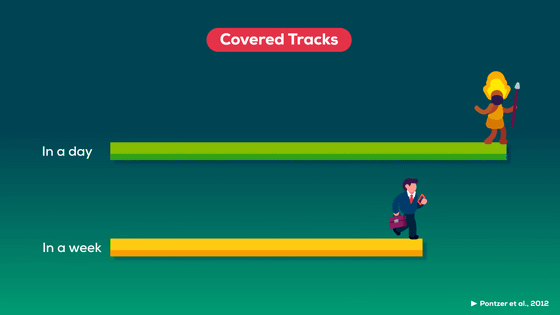
However, it turns out that there is no significant difference between the daily calorie consumption of the Hadza people and that of the average office worker. This phenomenon is not an ethnic difference, but can be seen anywhere in the world.
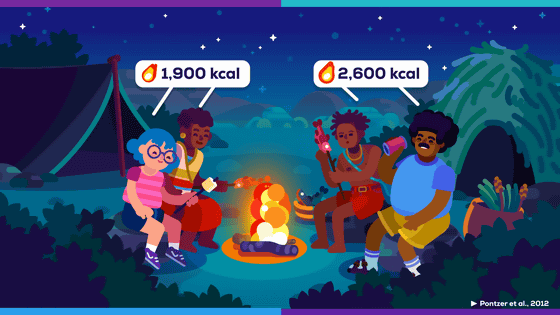
It is true that people who exercise regularly burn more calories per day than those who sedentary, but the difference is only about 100 to 200 kcal.
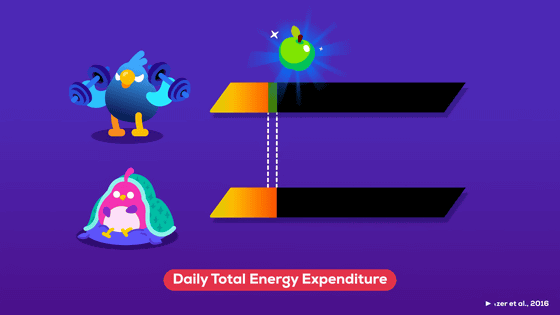
Of course, if someone who doesn't normally exercise suddenly starts exercising, they will burn excess fat and lose weight. However, as they continue exercising, their body will adapt to an athletic lifestyle, the balance of fat burning will be adjusted, and the excess calories consumed will decrease, so they will no longer lose weight.
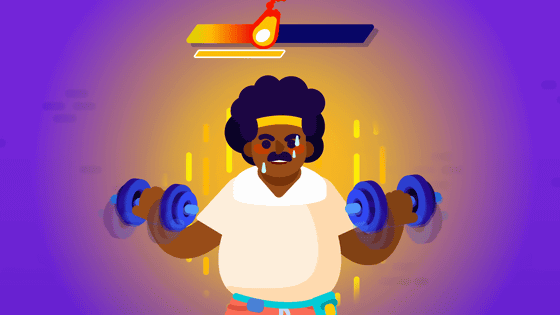
Also, it is not enough to just exercise a lot. When you exercise, excess energy is consumed in the body, which means that the activity of each organ and cell in the body becomes more active.

For example, inflammation that occurs when you get injured is part of the immune system. When excess energy is consumed in the body, the immune system becomes overactive, making you more susceptible to inflammation. Chronic inflammation can lead to a variety of diseases.
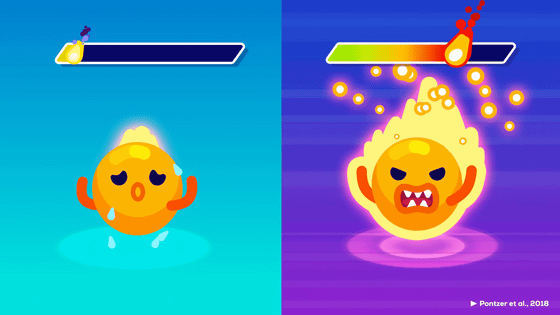
Cortisol, which causes stress, is a type of adrenal cortex hormone, and it is known that it is secreted in greater amounts when excess energy is consumed in the body. Cortisol is thought to have been necessary for humans to take immediate action in the wild in the past in order to survive, but for modern people, who are used to sitting at a desk, it has become more of a stress-inducing substance.

In short, if you are adapted to a sedentary lifestyle, you can burn just as many calories as someone who exercises regularly and still be perfectly healthy, provided you have a proper, balanced diet. If you eat more calories than you burn, you will naturally gain weight.

According to Kurzgesagt, this 'workout paradox' arises because humans burn more calories than other animals.

Unlike other animals, human children are born at a low developmental stage, so as they grow up little by little, they become social and acquire knowledge. They can then use their newly acquired social skills and wisdom to consume calories more efficiently. In other words, Kurzgesagt argued that humans' ability to consume a lot of calories and then adapt to life and consume calories appropriately is a feature, not a bug.

Related Posts:







